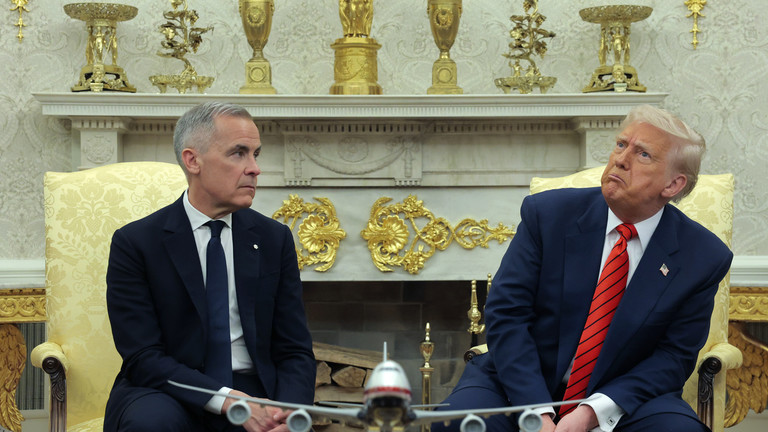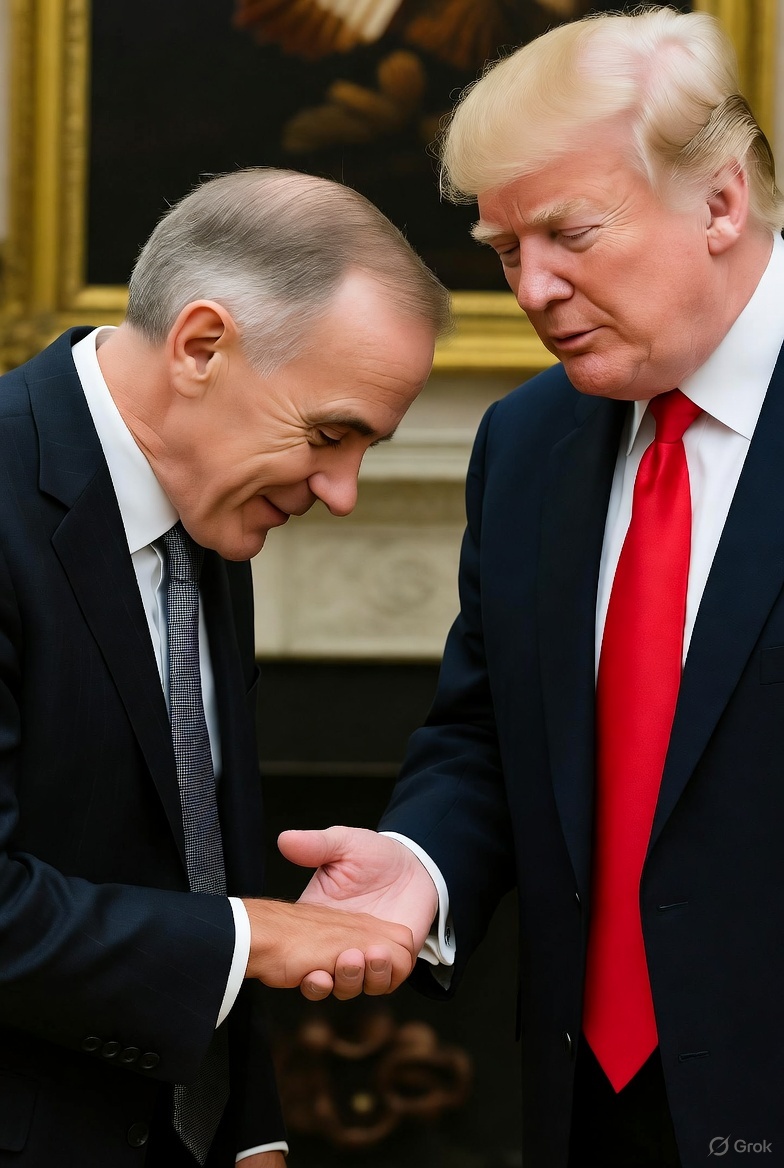In a moment straight out of a geopolitical thriller, Canadian Prime Minister Mark Carney found himself in the eye of a storm Tuesday—cornered in the Oval Office as President Donald Trump once again floated his unnerving fantasy: turning Canada into the United States’ “51st state.”
It was their first official meeting, but the atmosphere was anything but diplomatic. Behind closed doors, Carney confronted Trump over the recurring jabs and veiled threats, asking him—politely but firmly—to stop referring to Canada as a piece of real estate ripe for acquisition.
But Trump wasn’t backing down.
Channeling his past life as a real estate mogul, Trump waxed poetic about “removing the artificially drawn line” between the two nations. With eerie enthusiasm, he called a U.S.-Canada union a “beautiful formation” and “a wonderful marriage,” as though the merger of two sovereign countries were as simple as flipping a condo in Manhattan.
“I’m a very artistic person,” he said, smiling, while painting a vision of North America without borders.
The Prime Minister, caught in the surreal moment, pushed back hard. “There are some places that are never for sale,” Carney said, comparing Canada to sacred institutions like Buckingham Palace or the Oval Office itself. “Canada is not for sale. It won’t be. Ever.”
But outside that meeting, the chill didn’t lift.
Later, Carney told reporters he had asked Trump to drop the “51st state” rhetoric altogether, calling it “not useful.” Still, he admitted that Trump—unpredictable and unfiltered—would “say what he wants to say.”
And say it, he did.
Only days after Carney’s re-election, which was fueled in part by public backlash to Trump’s tariffs and annexation remarks, the U.S. President twisted the knife again. “I think I was probably the greatest thing that happened to him,” Trump joked at the top of their meeting. But the smile on Carney’s face didn’t reach his eyes.
The meeting was framed as constructive. Both leaders pledged to continue trade talks. Trump said the U.S. would “always be friends with Canada,” even as he refused to lift tariffs. Carney called the talks “wide-ranging,” hinting at deeper tensions beneath the surface.
But behind the rehearsed diplomacy lies a darker reality: One leader envisions a borderless North America under American dominion. The other is standing on a cliff, trying not to be pushed.










